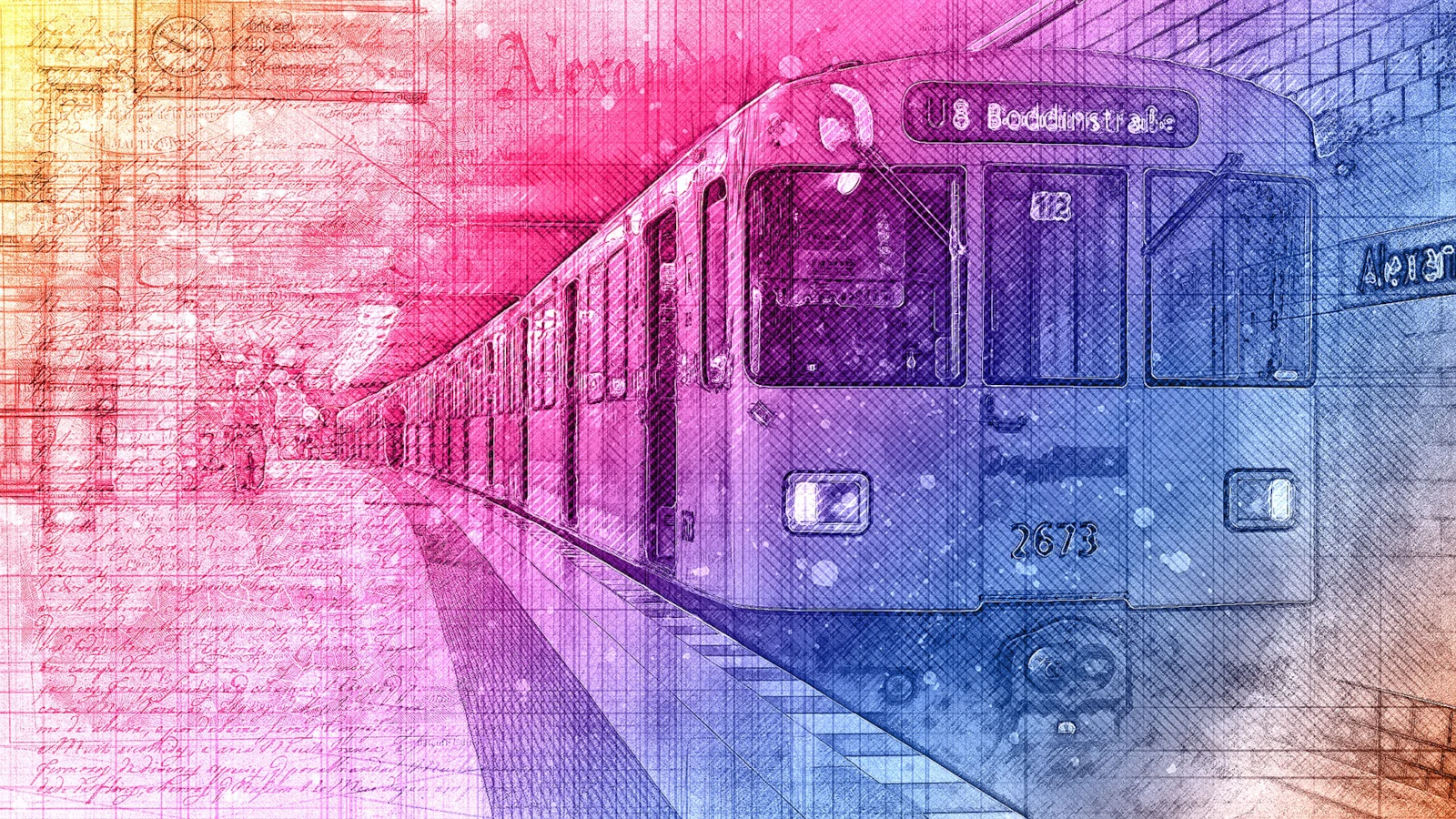
Kitchen Table MFA (Dogfish): Poet for Hire
Words By Benjamin Aleshire
This essay is part of the Kitchen Table MFA, a series that showcases writing communities through interviews and creative writing.
900 words, excerpted from the novel Poet for Hire, by Benjamin Aleshire
Berlin
The funniest thing about the gunshot is afterwards, nobody moves. All along the canal lined with sailboats, thick with wealthy families dining at restaurants in the unsuspecting sunshine, no one moves a muscle. I’m sitting by the water with my typewriter, where the swans patrol. I don’t move either. We are all paralyzed, characters in a movie and someone has pressed pause—the roaring laughter shuts like a faucet. The music of thousands of forks, suspended in the air on the way to thousands of mouths. The sailboats behind me bob imperceptibly, their hulls white with sun, while the swans circulate aimlessly.
An elvishly blonde waiter finally pierces the stasis, striding unafraid across the street to a post locked with several of the innumerable bicycles that flock through Berlin. She turns back toward the restaurant and makes her annunciation in a confident voice I can’t understand yet understand perfectly: It’s nothing! Just this bicycle here. Its tire exploded in the sun.
The sense of relief is a hand, patting all of us on the back. We are not on a bridge in London, we are not among the Côte d’Azure crowds plowed by trucks, not on a Madrid metro. We are not Ground Zero, after all.
The second funniest thing is how quickly everyone resumes eating as if nothing had happened.
*
In Boxhagenerplatz park flooded with light, an unshaven expressionless man comes over and reads my book quietly while his four-year-old daughter spoons pudding from a cup and traces wide arcs in the dirt with her sandals. He returns the book neatly, clears his throat and blurts out in that fearless German way, “Write me a poem about why we hurt ze ones we luff.”
“Oh no, what did you do?”
He laughs. “It’s for my wife, ja? I hope she will shtill be my wife—”
“You cheated on her, didn’t you? Why?” The daughter is inventing a song to go along with the patterns she traces in the dirt, her face smeared in pudding. It’s as if the typewriter has become a time machine and transported me to just one of many possible futures where I’ll have the opportunity to interrogate myself.
“I don’t know,” he says lamely, which is what all infidels say.
“Mama!” The little girl squeals, and her mother walks over, tucking stray strands of wheat behind her ears. The husband shuffles them away and I write this for them—
—which I worry will not save their marriage. But I cannot give him schmaltz. He asked me a direct question. I feel like a defendant in court whose lawyer has blundered. Maybe I should have written two versions—one for their marriage, and one for me. But there wasn’t time. There never is.
*
“Jude. Jude. Juuuude—”
In Kottbusser Tor station, three pairs of unnervingly blue eyes blaze through the dingy florescence, like so many sapphires beneath meticulously coiffed platinum hair. Teenagers. They look like they work out. All of them holding the same liter bottles of Kindl as the one I have tucked under my table. Two of them lean on the tile walls, smirking. The short one with the hair-lip blows his cigarette smoke in my face just to see what I’ll do. It must be my suit and hat, broad-brimmed for the sun and raked at Whitman’s angle, or maybe my grandfather’s nose is the only thing I’ve inherited.
“I’m American, you fuckin’ douchebag,” I snarl, and he leaps back, surprised. The other two mock him. He turns pink, pushes them savagely. Now he’ll have to prove himself to them, I think, my eyes taking in the periphery. The station empty, just an old lady at the far end holding groceries. Vibrations. I see a feeble light building itself in the tunnel, still faraway. He turns back to me.
“I luff America!”
“You would. Maybe I am Jewish—why do you care? Are you a Nazi?”
“I yam Donal Tramp!” he says heiling, and the other two double over, bursts of beer foam irrupting out their mouths. Rabid hyenas. The train, humming closer—for a split second, time slurs again. I can see them rush at me, manage to clock one of them with my Kindl bottle and expect it to shatter like the movies—it makes a dull thud and clatters to the station floor. Behind him as he staggers cursing I can see the old lady with the groceries’ head cock sideways like a bird’s and she just stands there, otherwise motionless. The other two plunge at me with the table tipping over between us and instead of pushing them away I stoop down to catch my typewriter before it smashes, pitching me off balance and the one with the hair-lip gets his fist square in my belly which has never felt more like soft bread dough. I’m bending over, top-heavy now and windless Jude he whispers again and something else I’ll never understand. Where’s my typewriter I think and why am I so weightless all of a sudden, these golden children would never pitch me onto the tracks—
I blink. Nope. Not today. Just a vision of one possible future of so many. The train glides into the station. Hairlip smirks, rolls up his sleeve for me. His tattoo a stout black cross, flaring out at the tips. He kisses it, flicks his cigarette at my feet, exhales soot, and then the train takes him somewhere, I don’t know where.
Read Nancy Reddy’s interview with Dogfish here. Be sure to also read the work of Dogfish member Laura Mattingly.